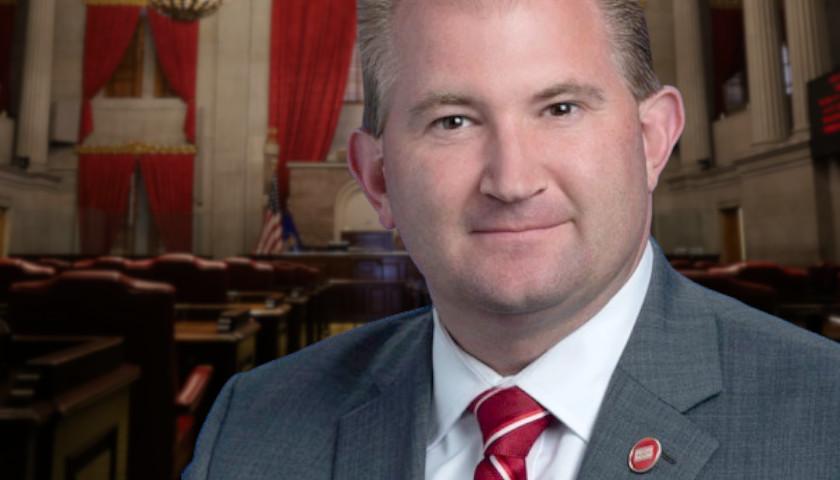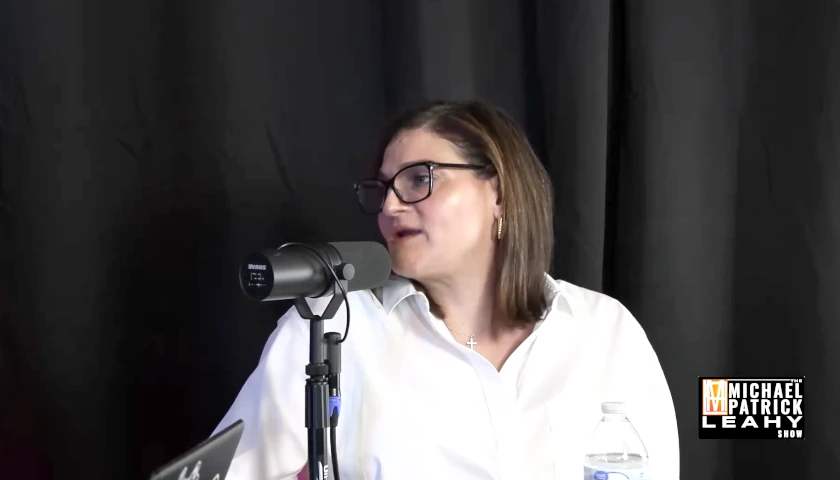Live from Music Row, Tuesday morning on The Tennessee Star Report with Michael Patrick Leahy – broadcast on Nashville’s Talk Radio 98.3 and 1510 WLAC weekdays from 5:00 a.m. to 8:00 a.m. – host Leahy welcomed education reporter for The Tennessee Star, TC Weber and official guest host, Aaron Gulbransen in studio to define literacy testing and discuss the Tennessee General Assembly’s big issues.
Leahy: TC Weber, our education reporter, is staying with us in this half hour. We welcome to our microphones the official guest host of The Tennessee Star Report, formerly our lead political reporter and now the Tennessee State Director for the Faith and Freedom Coalition, Mr. Aaron Gulbransen.
Gulbransen: Good morning, Michael. How are you? Good morning, TC.
Weber: Good morning. How are you doing, sir?
Gulbransen: I’m doing wonderful.
Leahy: We will get the inside scoop of all the goings on at the Tennessee General Assembly and also get your reaction to Governor Bill Lee’s inaugural address on Saturday. But we want to address this hanging chad (Weber laughs) that TC. Weber brought up to us.
I was saying that the Tennessee testing of reading proficiency of third graders from this past year shows that about two-thirds of third graders in Tennessee do not read at grade level.
And that’s the whole issue behind this third-grade retention bill, which they’re going to be held back or go to summer school if they are below proficiency levels. You raised an interesting point, TC. Why don’t you repeat that point and then elaborate on it?
Weber: The question is, we argue that we’re talking about reading, and two-thirds of kids can’t read. We’re not talking about reading. Kids can read. What we’re talking about is they can’t pass a test. And what we don’t recognize are a couple of things. First of all, the test itself includes things other than just reading. It includes punctuation, grammar, spelling, and comprehension.
And around the third-grade year, it moves out of a skill-based and into a standards-based test, and all the standards don’t get hit. So if I’m giving you a third-grade test, you’re only hitting a portion of the standards. And so teachers are teaching a test, trying to guess which standards are the ones that are going to show up in this test, and trying to cram all the standards in.
And we have too many. It could be an hour-long conversation about it, but you got to keep in mind what we’re talking about when we talk about literacy. Here’s a little nugget for you to keep under your hat. In talking to one of our state senators, he is rumored to be taking the test at some point in the next couple of weeks, and we’re going to talk to him after he does that. (Leahy laughs)
We agreed not to give too many details out, but he says, you know what? I’m hearing enough of this noise. I’m hearing enough of this. I want to find out for myself. So I’m going to take the test, and then I’ll come back and tell you if it’s got more than just reading on it. We’re going to tell you how accurate it measures and everything else. So we’ll have this conversation a whole lot more, I think, in the coming weeks.
Leahy: You’re saying this is a go with the TN Ready? But who’s responsible for putting this together as you would call it a faulty test together?
Weber: Pearson puts it together, and testing has turned into a billion-dollar-a-year business. And I would not be surprised in looking at some of the bills that we’re talking about using the screeners last year or last year’s part of the legislation, they mandated that kids take these screeners three times a year which will give an idea. Well, they’re created to guide instruction, not to be gatekeepers. So Pearson will probably have to create new tests and new money.
Leahy: And get more money for that. But here’s my issue with this. There should be a measurement of the ability to read and write and do arithmetic. And what you’re saying is this is not the measurement that you want.
Weber: When people talk about reading, my favorite question is they say, kids can’t read. And I say, what measurement are you using? And they say, they can’t read. And I say what measurement are you using? And they’ll say, TN Ready.
It’s not a reading test. It’s an ELA, a language arts test, which you may say, I’m splitting hairs, but the reality is don’t say reading when we’re talking about literacy. Is there room for growth in literacy? Absolutely.
Leahy: Who’s responsible for using those tests?
Weber: The legislators are the ones that make them into law, and the Department of Education are the ones that set what they want them to look like. And I tell you what I would do if I was you. I would look at who’s got the biggest bank accounts, and that will tell you who’s busy creating those tests.
Leahy: Well, there you go. And on that note, we welcome Aaron Gulbransen. TC is an expert on education. He’s been tracking all of these education bills going on. The state Senate is back in session today. The House is in session on Monday. Governor Lee delivered his inaugural address on Saturday.
He highlighted five priorities: transportation, energy, natural resource conservation, environment preservation, and protecting children in the state’s foster care system. Didn’t highlight education, which I would have highlighted. What do you see now going on in the Tennessee General Assembly? What are the big issues that will be up this session?
Gulbransen: Of course, that’s all a matter of perspective. (Weber chuckles) I will say I was able to go through well over 600 bills last week. And before you get impressed with my speed reading, although that’s kind of impressive, that’s another story.
You go through the captions of them and see if they apply to your particular job. I’m paying attention to transportation for somebody who’s actually lived in states like Virginia and New York, where it’s a big issue.
By the way, my unsolicited advice to the General Assembly and Governor Lee on that particular issue is, whatever you do, please do not, whatever you call it, a choice road or a toll road, and that’s a larger issue. But I saw this working in DC and in Northern Virginia.
If you have a floating fee for your choice road, you will find your constituents calling your offices nonstop when it’s $4 to use the lane at one point in a time during the day, and then somehow $22 of surge pricing, almost like an Uber surge. But there are a lot of education bills going on.
My favorite one right now is SB 102 by Senator Gardenhire and Representative Zachary, which the short version is, it prohibits LEAs, public charter schools, and public institutions of higher education, and the Department of Education requires an educator or employee to participate in implicit bias training. Which is another woke thing.
Leahy: It’s basically critical race theory under the rubric of social-emotional learning. TC, do you want to weigh in on this?
Weber: This is another one of those that you have to really read the bill and pay attention to what he’s saying here. And then you look at the data and the data shows that none of this diversity training or this implicit bias training is actually beneficial and it actually produces counter results and makes people get more in silos and more and less cooperative.
Leahy: Actually, it is the Silo Enhancement Bill.
Weber: That’s a better way to put it.
Listen to today’s show highlights, including this interview:
– – –
Tune in weekdays from 5:00 – 8:00 a.m. to The Tennessee Star Report with Michael Patrick Leahy on Talk Radio 98.3 FM WLAC 1510. Listen online at iHeart Radio.
Photo “TC Weber” by Thomas “TC” Weber for MNPS District 2 School Board. Background Photo “Classroom” by Wokandapix.






We really do not need another study or more data to tell us there is a literacy problem in our academic institutions. We certainly don’t need another expertly designed test. What we do need is an understanding that people have different thresholds ability and potential. Meeting them is much a personal responsibility as they are a goal of public education. More money, and more legislation is not going to fix this.